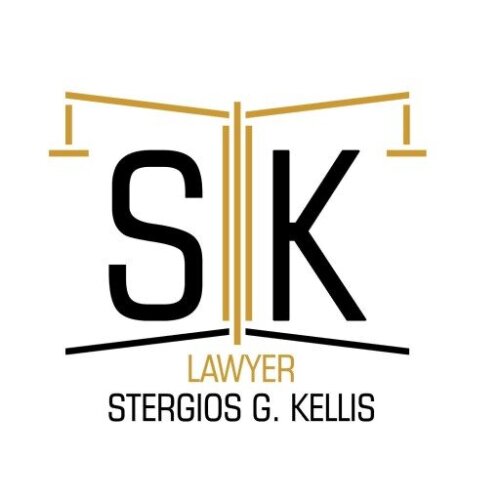Best Sustainable Finance Lawyers in Xanthi
Share your needs with us, get contacted by law firms.
Free. Takes 2 min.
List of the best lawyers in Xanthi, Greece
About Sustainable Finance Law in Xanthi, Greece
Sustainable finance is the practice of aligning financial services, investment and corporate activity with environmental, social and governance - ESG - objectives. In Xanthi, Greece, sustainable finance sits at the intersection of European Union rules, Greek national law and local permitting and planning regimes. Financial institutions, asset managers, companies and public bodies in Xanthi must follow EU-level rules - such as the Sustainable Finance Disclosure Regulation - as implemented in Greece, while also complying with national legislation that governs environmental permits, public procurement, company reporting and tax incentives for green projects.
Xanthi is part of the Region of East Macedonia and Thrace, which means regional planning, environmental approvals and certain funding processes are handled locally. For cross-border finance, EU institutions and pan-European market rules apply. Legal advice in Xanthi therefore often combines knowledge of EU sustainable finance standards, Greek corporate and administrative law, and local project and land-use regulation.
Why You May Need a Lawyer
Sustainable finance law is complex and multi-layered. You may need a lawyer in Xanthi in the following situations -
- Structuring and documenting green or sustainability-linked debt and equity instruments, including green bonds and sustainability-linked loans, to meet regulatory and market expectations.
- Preparing or reviewing disclosures required by the EU Sustainable Finance Disclosure Regulation - SFDR - and by the Corporate Sustainability Reporting Directive - CSRD - to avoid misleading statements and potential liability for greenwashing.
- Ensuring alignment with the EU Taxonomy for economic activities that claim environmental credentials, and drafting internal processes to evidence taxonomy alignment.
- Advising on permits and environmental compliance for projects that underpin financed assets - for example renewable energy installations, energy efficiency retrofits, or natural capital projects - including EIA requirements and Natura 2000 protections.
- Conducting ESG due diligence for mergers, acquisitions or project finance to identify regulatory, contractual and reputational risks.
- Responding to investigations or enforcement actions from regulators such as the Hellenic Capital Market Commission or the Bank of Greece.
- Drafting or negotiating sustainability clauses in supply contracts, concession agreements, public procurement tenders or investor agreements.
Local Laws Overview
Key legal layers and actors relevant to sustainable finance in Xanthi include -
- EU Sustainable Finance Framework - The EU has introduced a coherent set of rules including the Sustainable Finance Disclosure Regulation - SFDR - the EU Taxonomy Regulation, and the Corporate Sustainability Reporting Directive - CSRD. These set standards for disclosure, classification of environmentally sustainable activities, and mandatory reporting for many companies and financial market participants.
- Greek transposition and supervision - Greece transposes and enforces applicable EU rules through national legislation and supervisory action. The Hellenic Capital Market Commission - HCMC - oversees asset managers and listed entities, while the Bank of Greece supervises banks. National ministries - notably the Ministry of Environment and Energy and the Ministry of Finance - issue guidance and measures that affect incentives, permitting and taxation.
- Environmental and planning law - Projects in Xanthi that are the subject of financing will generally need environmental permits, building permits and sometimes an environmental impact assessment - EIA. Special-protection areas such as Natura 2000 sites require additional assessments and may limit permissible activities.
- Public procurement and concessions - Public authorities use sustainability criteria in tenders and concessions. If you are bidding for public contracts or entering concessions in the region, legal advice on sustainable procurement rules is important.
- Corporate and securities law - Issuance of green bonds, sustainability-linked notes or labelled investment products requires compliance with securities law, prospectus rules, and market abuse regulations. The Athens Exchange and national disclosure rules will apply to public offerings.
- Tax and incentives - Greece offers certain incentives for green investments and renewable energy projects. Tax law and state aid rules influence project feasibility and financing structure.
- Local administration - The Region of East Macedonia and Thrace and the Regional Unit of Xanthi handle local permitting, spatial planning and some funding allocation. Local municipal authorities also play a role for projects that affect municipal land or services.
Frequently Asked Questions
What exactly is sustainable finance and how does it affect my business in Xanthi?
Sustainable finance means directing capital to activities that support environmental and social goals. For businesses in Xanthi this can affect access to finance, disclosure obligations, eligibility for incentives and the legal terms of lending or investor agreements. Lenders and investors may require ESG-related covenants or reporting as part of financing.
Which EU rules apply to sustainable finance and do they apply in Greece?
Main EU rules include the Sustainable Finance Disclosure Regulation - SFDR - the EU Taxonomy Regulation and the Corporate Sustainability Reporting Directive - CSRD. These rules apply across EU member states, including Greece. National law and supervisory bodies implement and enforce them locally.
How do I know whether an activity or project qualifies as taxonomy-aligned?
Taxonomy alignment requires meeting technical screening criteria set by the EU for specific economic activities, demonstrating substantial contribution to environmental objectives, doing no significant harm to other objectives and meeting minimum social safeguards. Legal and technical assessment is usually needed to gather evidence and prepare documentation.
What are the risks of greenwashing and how can I avoid them?
Greenwashing means making misleading claims about environmental benefits. Risks include regulatory enforcement, fines, civil liability and reputational damage. To avoid greenwashing, ensure claims are accurate, backed by evidence, use established standards, disclose methodologies, and obtain independent verification where appropriate.
Do small and medium enterprises in Xanthi need to prepare sustainability reports?
The CSRD applies to large companies and certain listed companies first, but reporting obligations are expanding over time. Even if not legally required, SMEs often face investor or buyer requests for ESG information. Preparing proportionate reporting and basic ESG policies can improve access to finance and reduce transaction costs.
Can I issue a green bond or sustainability-linked loan from Xanthi?
Yes. Issuers in Greece can structure green bonds or sustainability-linked loans, but must ensure documentation meets legal and market standards, that use-of-proceeds or KPI targets are clear and verifiable, and that disclosure obligations under securities law and SFDR are met. Independent external review is commonly used to support market credibility.
Which local authorities in Xanthi should I consult for environmental permits?
For project permits you will typically work with municipal authorities, the Regional Unit of Xanthi, and regional services under the Decentralized Administration for Macedonia and Thrace. Depending on the project, the Ministry of Environment and Energy and specific national agencies may also be involved, especially for major infrastructure or protected areas.
Who enforces sustainable finance rules in Greece?
Enforcement is shared. The Hellenic Capital Market Commission oversees asset managers and securities markets, the Bank of Greece oversees banks, and national ministries and environmental authorities enforce environmental permits and related laws. European authorities such as ESMA and the European Commission also play supervisory and rule-making roles at the EU level.
How long does legal due diligence take for an ESG-sensitive transaction?
Timeframes vary by complexity. A basic ESG screening can take a few days to a few weeks. Full due diligence for a project finance deal, acquisition or bond issuance that requires environmental studies, permit checks and legal risk analysis may take several weeks to a few months. Early scoping with counsel speeds the process.
How much does it cost to get legal help on sustainable finance issues in Xanthi?
Costs depend on the scope of work and the expertise required. Simple advisory letters or compliance checks are lower cost. Complex cross-border transactions, structuring of green securities or major project due diligence involve higher fees. Ask for a clear fee estimate or a staged engagement plan when you first consult a lawyer.
Additional Resources
The following types of organizations and bodies can provide useful information and support -
- National regulators and ministries - Hellenic Capital Market Commission - HCMC - Bank of Greece - Ministry of Environment and Energy - Ministry of Finance - Ministry of Development and Investments.
- Regional and local authorities - Region of East Macedonia and Thrace - Regional Unit of Xanthi - local municipal technical offices for permits and planning.
- European institutions - European Commission departments responsible for sustainable finance, European Investment Bank and European Bank for Reconstruction and Development for finance programs and technical assistance.
- Development and finance institutions in Greece - national development banks and public programs that offer green financing and guarantees.
- Professional and industry bodies - local Bar Association in Xanthi for qualified lawyers, Greek accounting and auditing bodies for sustainability reporting, and industry associations that work on green transition issues.
- NGOs and technical advisers - environmental consultancies, certified verifiers, universities and research centers that can provide technical assessments and independent reviews.
Next Steps
If you need legal assistance for sustainable finance matters in Xanthi follow these practical steps -
- Gather key documents - project descriptions, existing permits, financing proposals, ESG policies, and any prior disclosures or sustainability reports.
- Identify the primary legal questions - compliance, structuring, permitting, disclosure, or enforcement risk - so you can brief counsel efficiently.
- Contact a lawyer or firm with experience in sustainable finance, EU regulatory compliance and local administrative law. Confirm they are licensed and members of the local Bar Association.
- Ask for a clear engagement plan and fee estimate. Consider a phased approach - initial compliance review, followed by deeper due diligence or transaction support as needed.
- Plan for technical inputs early - environmental assessments, engineering reports and third-party verification are often needed to support legal opinions and disclosures.
- Keep documentation and processes transparent to meet reporting and audit needs. Maintain records that demonstrate decision-making and evidence behind sustainability claims.
- If a dispute or regulatory inquiry arises, seek legal representation quickly to protect rights and manage communications with authorities and stakeholders.
Getting tailored legal advice early reduces risk, supports access to finance and helps you meet both local and EU sustainable finance requirements. A qualified local lawyer can bridge EU rules and Xanthi-specific administrative and permitting practice to help you proceed confidently.
Lawzana helps you find the best lawyers and law firms in Xanthi through a curated and pre-screened list of qualified legal professionals. Our platform offers rankings and detailed profiles of attorneys and law firms, allowing you to compare based on practice areas, including Sustainable Finance, experience, and client feedback.
Each profile includes a description of the firm's areas of practice, client reviews, team members and partners, year of establishment, spoken languages, office locations, contact information, social media presence, and any published articles or resources. Most firms on our platform speak English and are experienced in both local and international legal matters.
Get a quote from top-rated law firms in Xanthi, Greece — quickly, securely, and without unnecessary hassle.
Disclaimer:
The information provided on this page is for general informational purposes only and does not constitute legal advice. While we strive to ensure the accuracy and relevance of the content, legal information may change over time, and interpretations of the law can vary. You should always consult with a qualified legal professional for advice specific to your situation.
We disclaim all liability for actions taken or not taken based on the content of this page. If you believe any information is incorrect or outdated, please contact us, and we will review and update it where appropriate.










